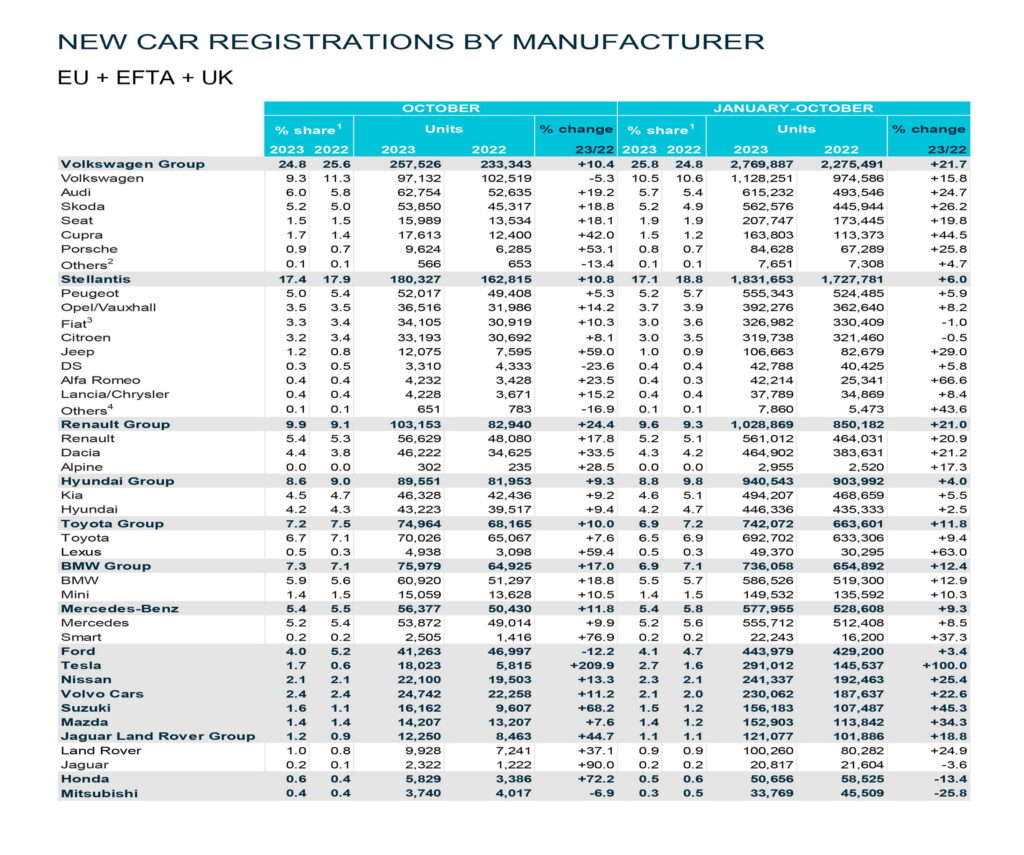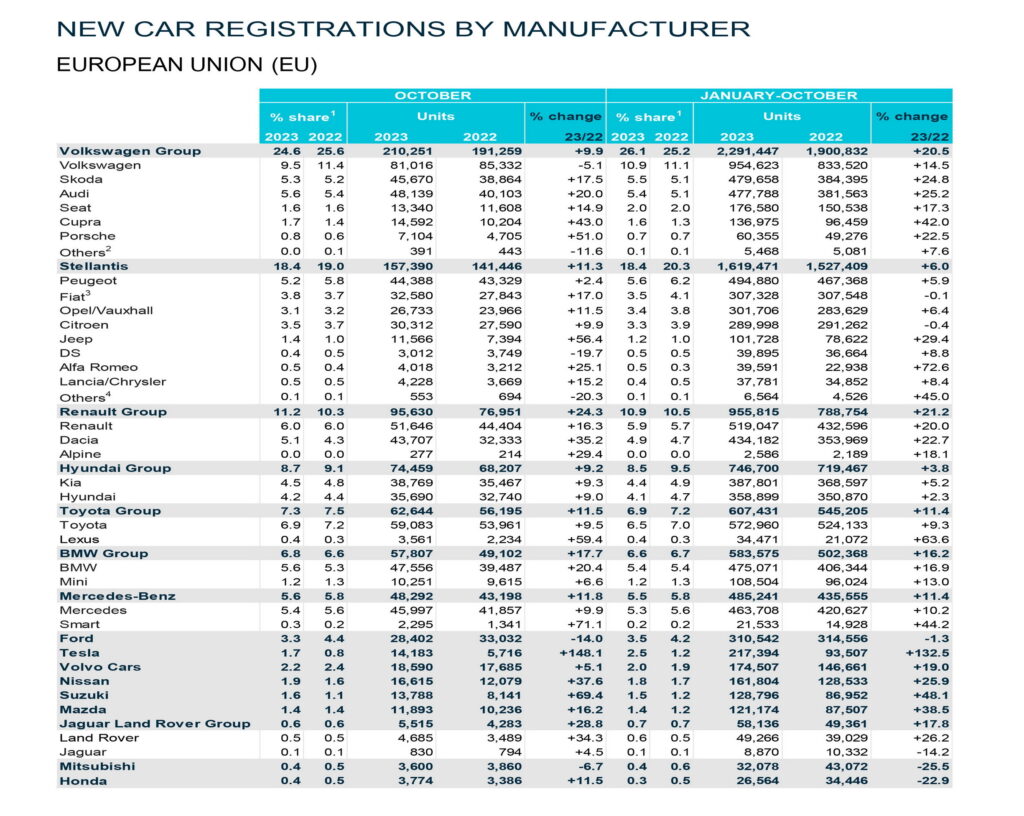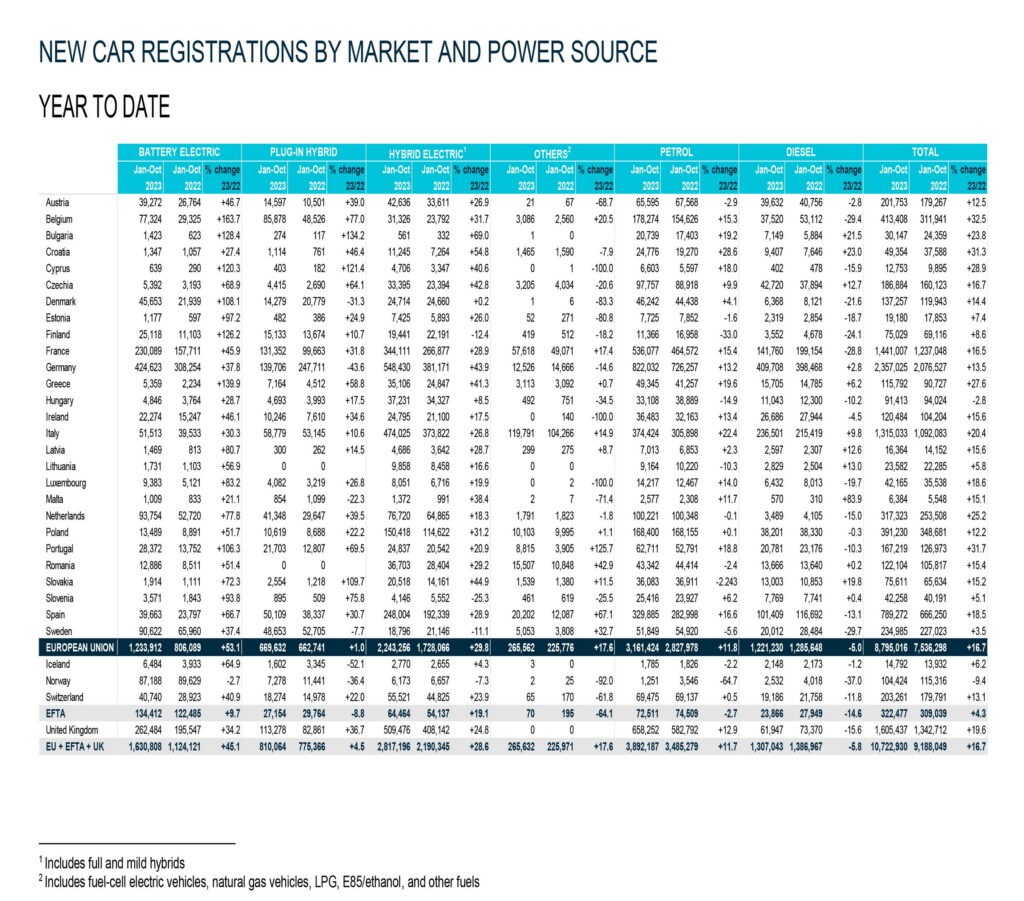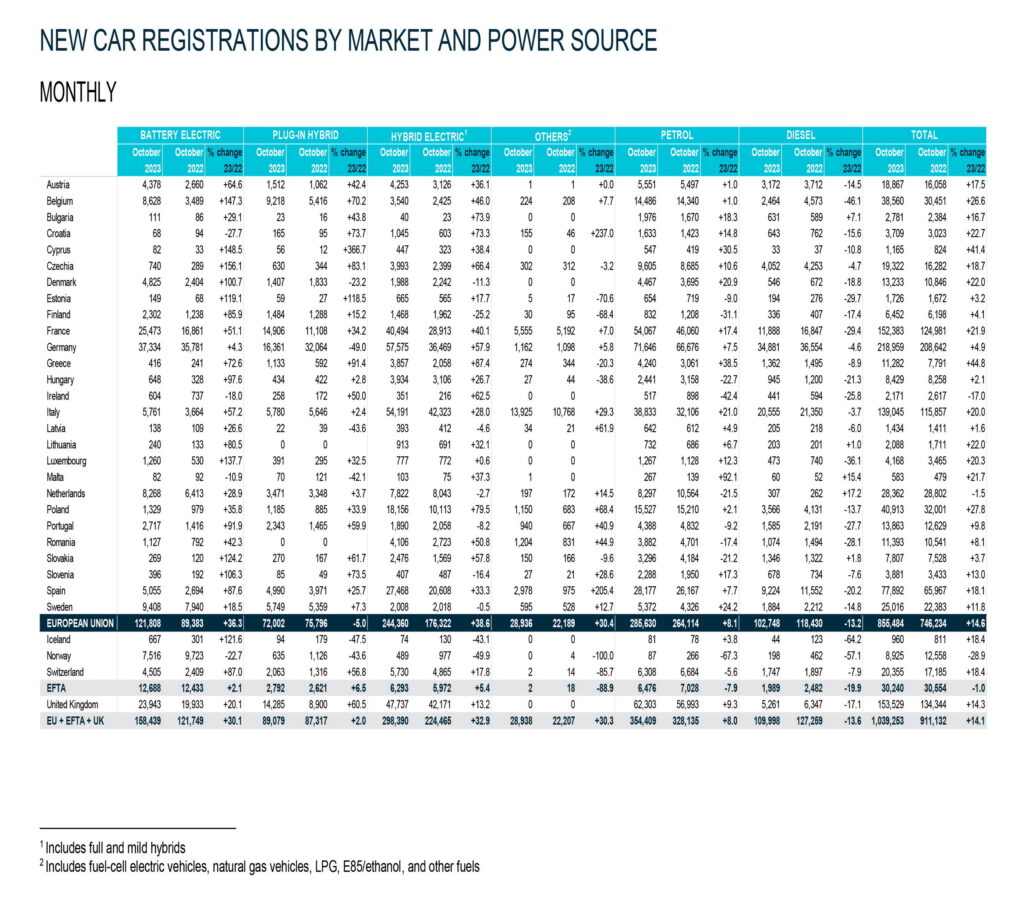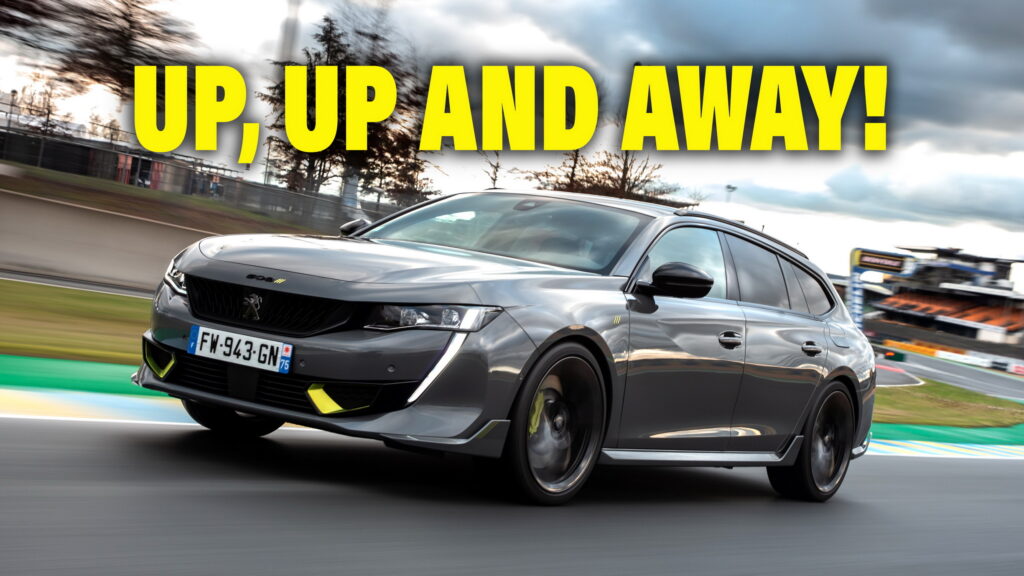Inflationary pressures have hit the hip pocket of many consumers but data out of Europe reveals that new car registrations jumped for the fifteenth consecutive month in October and demand for new cars shows no signs of slowing down.
Data published by the European Automobile Manufacturers’ Association (ACEA) reveals that new car registrations jumped by 14.6% to 855,484 units across the European Union last month. This follows a strong 12-month trend in growing demand and in the first 10 months of 2023, new car registrations across the region are up 16.7%, totaling almost nine million vehicles.
Demand for new vehicles has proven to be particularly strong in Italy (+20.4%), Spain (+18.5%), France (+16.5%), and Germany (+13.5%), with Hungary being the sole country in the EU that didn’t see an increase in new car registrations during the January-October period.
Read: Wealthy Nations In Europe Dominate EV Adoption
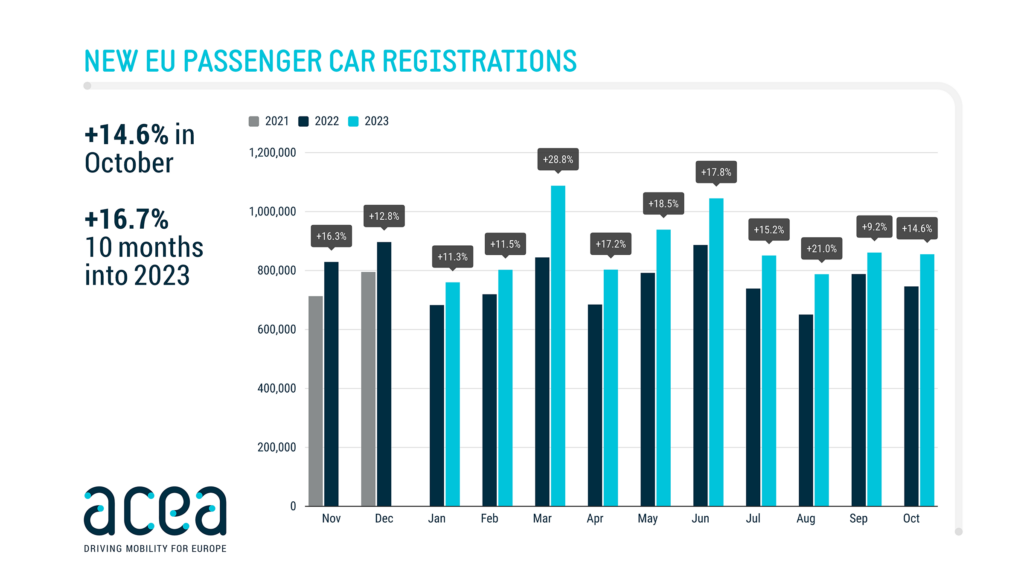
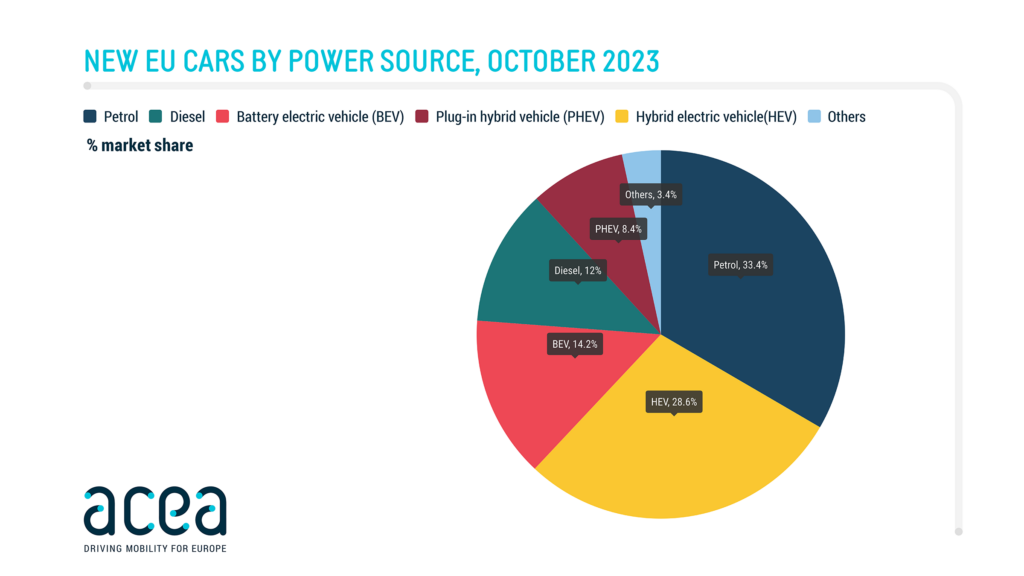
Electrified vehicles are proving to be particularly popular across the continent. While petrol-powered cars made up 33.4% of vehicles registered in October, hybrids weren’t far behind with a 28.6% share of the market. They were followed by battery-electric vehicles with a 14.2% share, diesel models with a 12% share, and plug-in hybrids with an 8.4% share of the market.
October proved to be a particularly strong month for sales of hybrids and BEVs. In fact, EU registrations of BEVs grew 36.3% during the month, reaching 121,808 units, while registrations of new hybrid cars surged by 38.6%. Demand for BEVs grew particularly quickly in Belgium (+147.3%) and Denmark (+100.7%) while hybrid sales climbed 57.9% in Germany, 40.1% in France, and 28% in Italy.
The ACEA’s data also reveals that the petrol car market in the European Union rose by 8.1% in October due primarily to sales increases in Italy, France, Spain, and Germany. The same cannot be said about diesel cars with demand declining by 13.2% in October, led by a 29.4% drop in France and a 20.2% fall in Spain.
